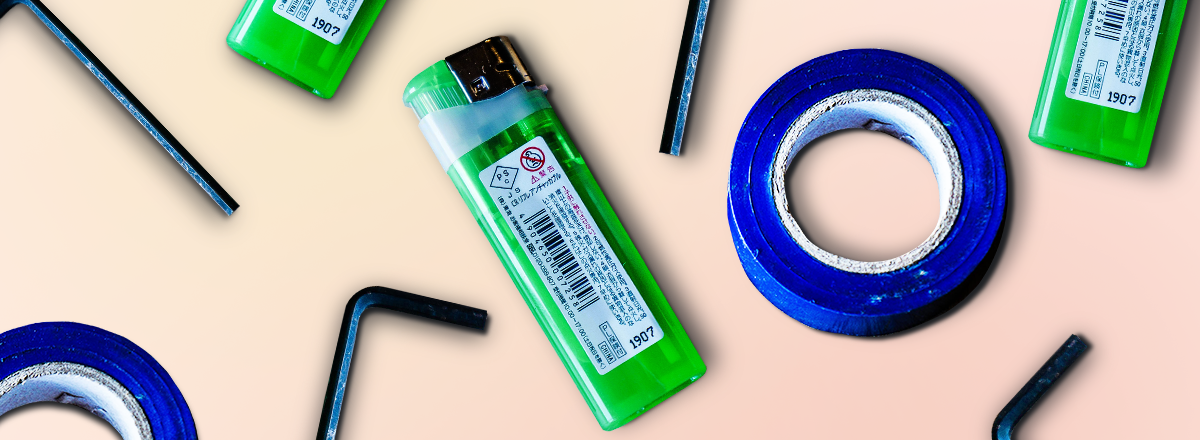Constantly wearing a face mask in hot weather can cause skin irritation and acne breakouts on your face. There is even a particular term for that now – it’s “maskne.” In this article, we are figuring out why protective face masks can harm the skin and how to cope with it.
Sanitizers, gloves, and face masks suddenly became vital accessories for everyday life, and they are probably here to stay for a long time. And if there are minimum questions with sanitizers and gloves, everything is not that simple with medical masks.
It is obligatory to wear face masks not only in public places, but also everywhere outside your apartment. Constantly wearing a mask in such hit weather can cause skin irritation and breakouts, which are known to be so-called maskne (acne caused by face masks). Let’s figure out why protective masks can be harmful to your skin and how to cope with it.

Why do irritation and breakouts appear?
A mask that tightly fits your face causes friction and squeezing, usually on the nose and under the eyes. If you wear a mask all day (and people who could not isolate themselves in the countryside or at least in their apartment are required to be in a mask everywhere), unfortunately, you cannot avoid irritation or small wounds in those areas. The skin does not have enough time to recover from such injuries overnight, so they become worse and make you uncomfortable.
Another issue is breakouts, especially when you have them even without a mask. Friction and skin irritation lead to skin damage, which enables dirt and bacteria to penetrate the skin, and nothing good will ever come out of it for you. It can only cause a cosmetic scourge of 2020 – maskne.
Usually, such acne is localized in the chin, nose, and cheeks area. In warm weather, the face sweats under the mask, the pores get clogged, and if there’s also a layer of makeup base between your face and a mask (like foundation or powder), all this is a perfect environment for bacteria to reproduce. Our own breath can also lead to the appearance of maskne. With every exhalation, an effect of a greenhouse is created under the mask, which leads to the active reproduction of bacteria.
How to avoid maskne?
To avoid such an unpleasant thing as maskne, you need to think about how carefully you clean your skin and how you take care of it. In this situation, cleaning it with a shower gel simply will not be enough (in fact, it is never enough, so just don’t do it).
Also, take a closer look at the mask you wear. If you chose a reusable one, opt for models with a silk lining. This material is suitable for people with sensitive skin. Besides, silk absorbs moisture well (for instance, sweat and condensate formed under a mask when you breathe). A cotton mask is much better than neoprene models because it irritates the skin less. In general, all neoprene models can increase sweating. And due to too tight fit to the skin, they can also cause mechanical irritation.
Despite its name, a reusable mask will not last forever, and after a certain number of uses (the manufacturer usually indicates the approximate number), it will have to be replaced with a new one.
As for cosmetics, it is best to abandon a thick foundation while wearing a mask, or at least not to apply it to the area under the fabric. The product will melt on the skin from moisture and heat, and then stain the mask and make steamed and irritated skin dirty.

How to combat maskne?
If you are a “lucky” owner of irritations and breakouts, it is worth adding cleansers with anti-inflammatory components to your daily skincare. For example, with benzoyl peroxide, tea tree oil, and chamomile extract. You can easily find facial cleansing gels and tonics with such components in lines for acne-prone skin. Use gently exfoliating products several times a week – they remove dead cells from the surface of the skin and prevent inflammation.
It is better to treat breakouts and inflammations themselves with targeted agents. The main thing is to know your limits because there’s a high risk of overdrying the skin. Before putting on a mask, you can put under-eye patches on areas where irritation and damage regularly occur. They will create a barrier to soften friction.
Keep your skin hydrated so that it will be easier for the skin to cope with such mask adversities. For daily use, choose a face cream with anti-inflammatory components. For example, with niacinamide, which restores the skin barrier, establishing the production of ceramides, proteins that hold water in the skin.
Anyway, the main and fundamental advice would be words that we recommend memorizing as a mantra: change your face mask every two hours if it’s disposable, and it is also better to change a reusable mask to a fresh one during the day. And when you return home, wash it.














